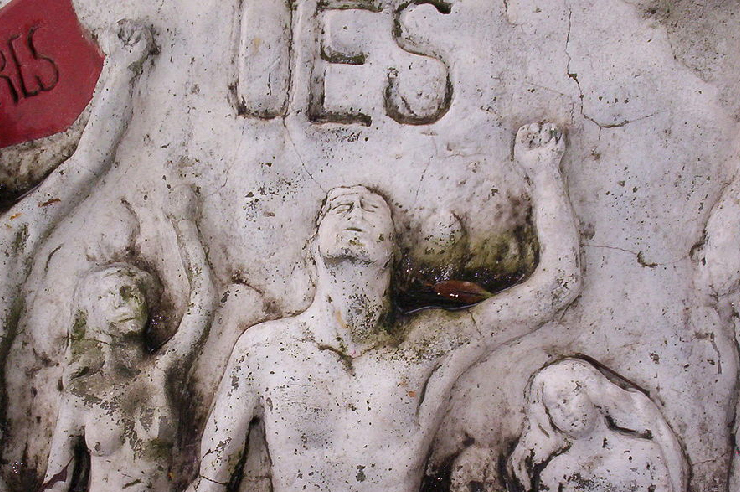Protests resume after the government rolls back popular gains.
Published in the March 2003 edition of the Labor Notes.
Last autumn in El Salvador emerged as a season of uprising against expanding privatization in Latin America. In September 2002 doctors, nurses, and support workers in the country’s Social Security health care system (ISSS) went on strike to protest the ruling ARENA party’s moves to turn over public medical services to private contractors. In a series of growing “White Marches,” the largest of which drew up to 200,000 people, demonstrators took to the streets of San Salvador dressed to match the white uniforms of health care workers.
Marchers demanded that President Francisco Flores withdraw his voucher plan for health care reform. Violeta Menjívar, legislator with the opposition FMLN party, argued that the proposal gives needed care to “each according to their ability to pay.” Union members called it “pay or die.”
During October and November, students occupied buildings at the National University, doctors in other branches of the health care system left work on selected days to show solidarity, and union allies erected one-day blockades on 14 major roads and bridges, closing off even the country’s border crossings. The battle over privatization escalated further on November 12, when members of the STSEL electricity workers union began a strike against the sale of public utilities.
Each strike produced remarkable victories. Popular outrage allowed the Legislative Assembly to pass Decree 1024, the “State Guarantee of Health and Social Security,” into law on November 14. The measure outlawed planned privatization of health care and reversed several government contracts with private businesses. Subsequently, electrical workers and allied legislators prevented a $40 million loan from the Inter-American Development Bank (IDB) from being approved before the deadline of November 29. The loan was designed to finance Salvadoran participation in the SIEPAC electrical superhighway, a multi-country project meant to prepare the region for the Central American Free Trade Agreement (CAFTA).
However, if autumn in El Salvador produced imposing challenges to the economic agenda favored by the region’s elites, a different season began in December. Validating SIMETRISSS health care union leader Ricardo Alfaro’s warning that “the President carries an extensive resume of broken promises with the Salvadoran people,” Flores’ party took advantage of the holiday season to repeal Decree 1024. By adding targeted pork-barrel projects to the national budget, ARENA convinced a smaller right-wing party to change its votes on the anti-privatization law, putting the future of guaranteed health care in jeopardy.
Similar use of political favors—and disregard of provisions in the Salvadoran Constitution that should have prevented immediate reconsideration of the loan—allowed Flores to override opposition to the SIEPAC deal. Ignoring its own expired deadline, the IDB eagerly approved the first disbursements of loan money.
“The fight over SIEPAC will now move to the community level,” says STSEL Secretary-General Alirio Romero. There, union members will join with neighborhood groups that have already forced the government to shelve construction of the San Salvador beltway, another crucial point in the pre-CAFTA infrastructural network, until at least 2004.
Meanwhile, health care organizers plan to extend the White Marches of the fall into coming months, promising advocates of privatization a winter of resistance.
__________
Photo credit: Salvador Henriquez / Wikipedia Commons.
